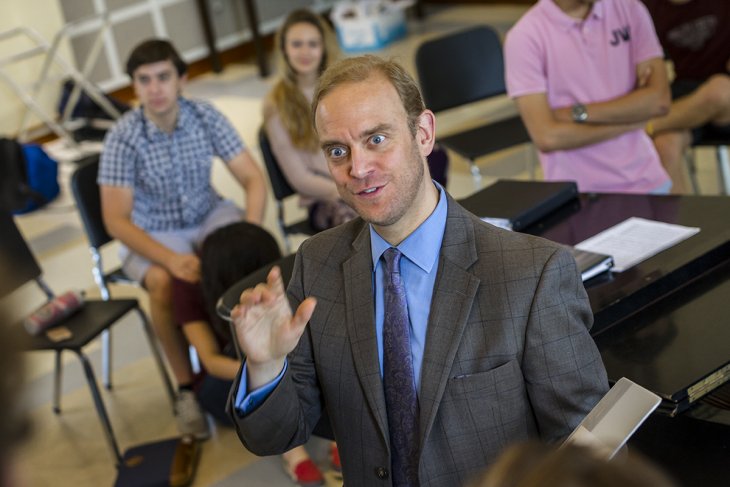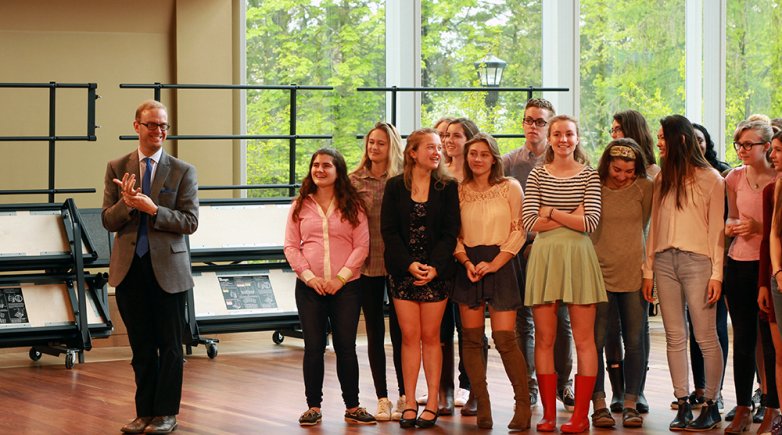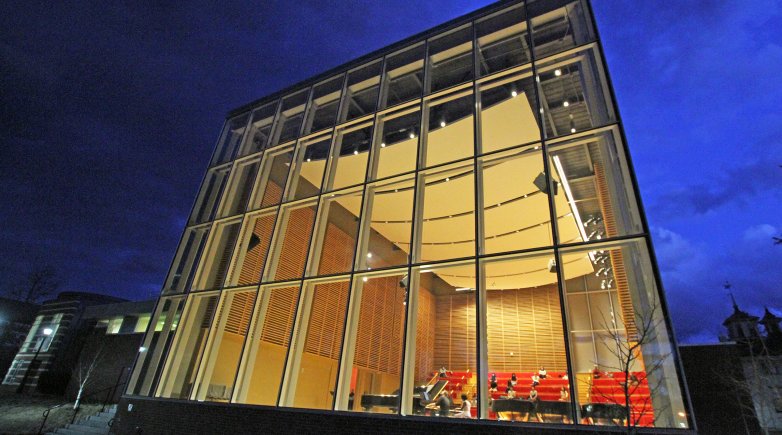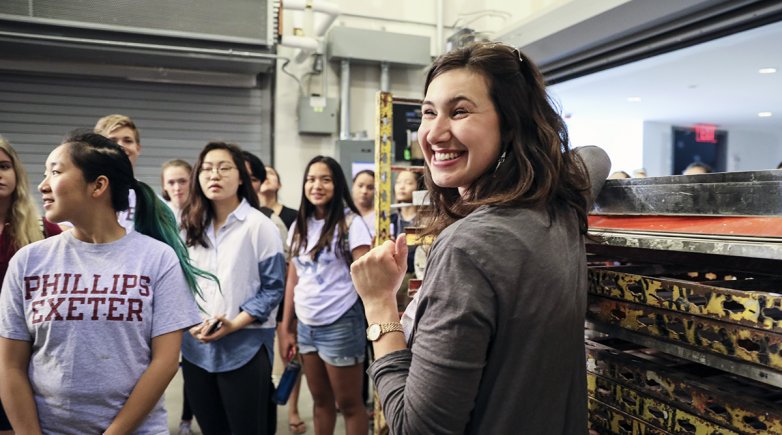Kristofer Johnson

"When it comes to building relationships, I don’t know what tool is more powerful than communal singing.”
Even while conversing, Director of Choirs and Instructor of Music Kristofer Johnson gestures and inflects as though he is conducting. His joy in his job is just that irrepressible. Given that he works each year with hundreds of student and community singers, such ebullience is an asset.
Growing up in Pennsylvania, Johnson was steeped in music, taking up piano, string bass and singing as a child before becoming entranced with choral music in high school. Although other subjects appealed to him, music, he says, “was always ascendant.” In his senior year, Johnson was accepted into the prestigious Oberlin Conservatory of Music, where he studied singing with an eye to eventually conducting and teaching. He would later complete a master’s in choral conducting at the University of Illinois, which led to a career crossroads.




